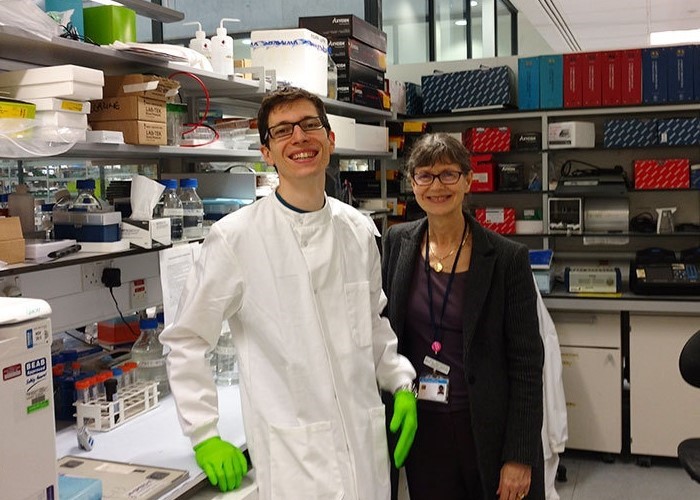Researchers based at the University of Oxford have discovered a way to boost the effectiveness of a new type of drug which is currently being tested for breast cancer.
Researchers based at the University of Oxford have discovered a way to boost the effectiveness of a new type of drug, called xentuzumab, which is currently being tested for breast cancer.

Finding new treatments
Researchers, part-funded by Breast Cancer Now, have discovered a way to boost the effectiveness of xentuzumab, a new type of drug blocking a protein called insulin-like growth factor, or IGF.
Xentuzumab has already been tested to treat oestrogen receptor positive (ER+) secondary breast cancer.
The team at the University of Oxford found that combining xentuzumab with drugs that block either of the two proteins CHK1 and WEE1 could significantly improve the effect of the treatment.
Researchers hope that these results could lead to a new effective treatment combination.
Exploring all options
Researchers led by Dr Valentine Macaulay investigated how blocking the IGF protein could be most effectively used against breast cancer.
In previous research, the scientist found that blocking IGF slows down the speed at which breast cancer cells can copy their DNA to multiply. But until now this was an unexplored cancer weakness.
‘Before a cancer cell can divide into two cells it must make a complete copy of its DNA. Our recent research has shown that blocking IGF slows down the rate of DNA copying by reducing the supply of DNA building blocks,’ explained Dr Valentine Macaulay. ‘Our new discovery proves that we can exploit this finding to kill breast cancer cells more effectively.’
The group tested a combination of xentuzumab and a series of existing and emerging drugs that also interfere with the copying of DNA or DNA repair processes. They found that xentuzumab was most effective when combined with drugs MK-8776 and SRA737, which block a protein called CHK1, and AZD1775 that blocks WEE1 protein.
Merging the approaches
Blocking CKH1 and WEE1 proteins at the same time as treating breast cancer cells with xentuzumab completely stops the cance cells from copying DNA. This causes catastrophic DNA damage that kills the cancer cells at a much higher rate. And it could significantly improve the effect of the treatment.
Dr Simon Vincent, Director of Research, Support and Influencing, explained the importance of these findings: ‘This new research provides important insight into the role of the IGF protein in the ability of cancer cells to copy their DNA and demonstrates how emerging drugs can be used to turn this process to our advantage. We hope these discoveries lead to urgently needed new and effective treatments that will stop people with incurable ER+ secondary breast cancer dying from this devastating disease.’
‘We hope these new findings will help to develop new combination treatments for people with breast cancer, by targeting processes that are essential for cancer cell growth,’ added Valentine.
The study was funded by Breast Cancer Now and Cancer Research UK, and published in the journal Oncogene.
If you have any concerns about breast cancer, you can speak to our expert nurses on our free Helpline at 0808 800 6000 or by using our confidential Ask Our Nurses service.